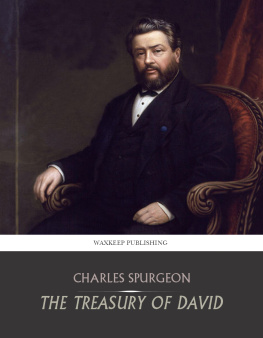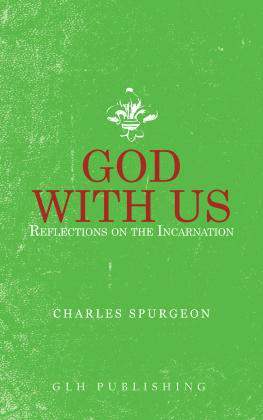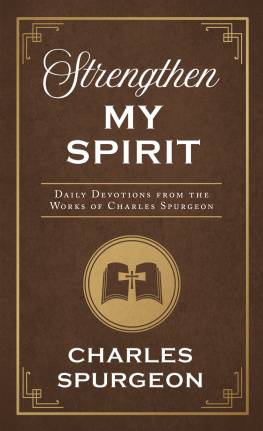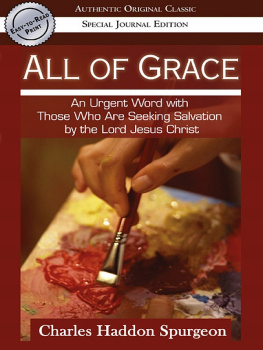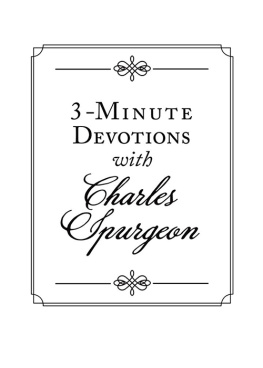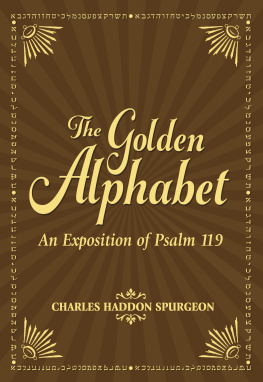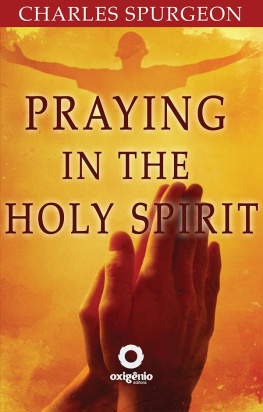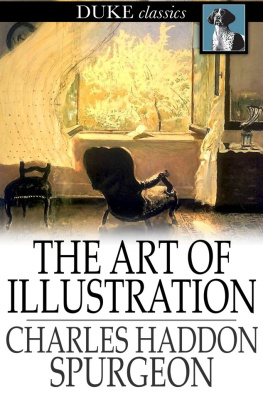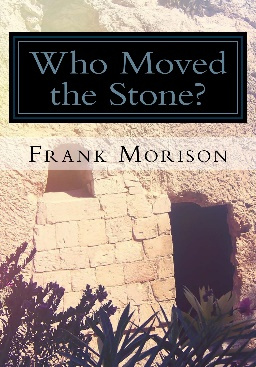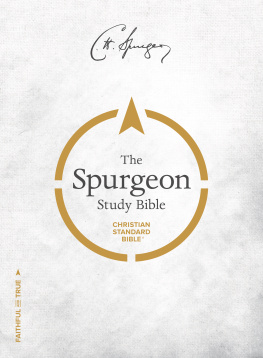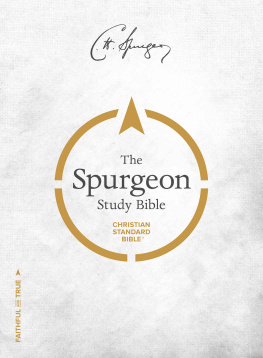Charles Spurgeon - The Treasury of David
Here you can read online Charles Spurgeon - The Treasury of David full text of the book (entire story) in english for free. Download pdf and epub, get meaning, cover and reviews about this ebook. year: 2018, publisher: Charles River Editors, genre: Science. Description of the work, (preface) as well as reviews are available. Best literature library LitArk.com created for fans of good reading and offers a wide selection of genres:
Romance novel
Science fiction
Adventure
Detective
Science
History
Home and family
Prose
Art
Politics
Computer
Non-fiction
Religion
Business
Children
Humor
Choose a favorite category and find really read worthwhile books. Enjoy immersion in the world of imagination, feel the emotions of the characters or learn something new for yourself, make an fascinating discovery.
- Book:The Treasury of David
- Author:
- Publisher:Charles River Editors
- Genre:
- Year:2018
- Rating:3 / 5
- Favourites:Add to favourites
- Your mark:
- 60
- 1
- 2
- 3
- 4
- 5
The Treasury of David: summary, description and annotation
We offer to read an annotation, description, summary or preface (depends on what the author of the book "The Treasury of David" wrote himself). If you haven't found the necessary information about the book — write in the comments, we will try to find it.
Charles Haddon Spurgeon (1834-1892) was a British Baptist who became known as The Prince of Preachers. Spurgeon remains popular today among Christians of many denominations. Spurgeons magnum opus is The Treasury of David which contains his commentaries on all 150 Psalms of The Bible.
The Treasury of David — read online for free the complete book (whole text) full work
Below is the text of the book, divided by pages. System saving the place of the last page read, allows you to conveniently read the book "The Treasury of David" online for free, without having to search again every time where you left off. Put a bookmark, and you can go to the page where you finished reading at any time.
Font size:
Interval:
Bookmark:
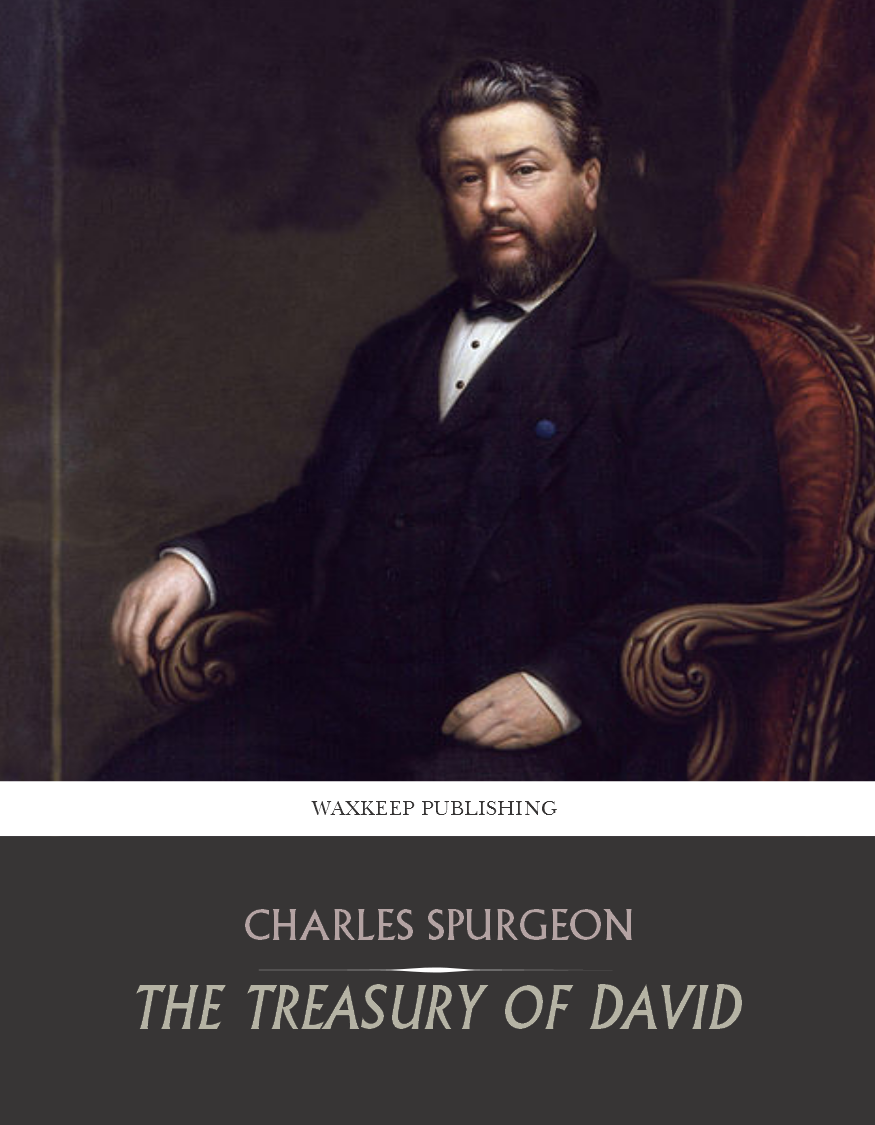

My Preface shall at least possess the virtue of brevity, as I find it difficult to impart to it any other.
The delightful study of the Psalms has yielded me boundless profit and ever-growing pleasure; common gratitude constrains me to communicate to others a portion of the benefit, with the prayer that it may induce them to search further for themselves. That I have nothing better of my own to offer upon this peerless book is to me matter of deepest regret; that I have anything whatever to present is subject for devout gratitude to the Lord of grace. I have done my best, but, conscious of many defects, I heartily wish I could have done far better.
The Exposition here given is my own. I consulted a few authors before penning it, to aid me in interpretation and arouse my thoughts; but, still I can claim originality for my comments, at least so I honestly think. Whether they are better or worse for that, I know not; at least I know I have sought heavenly guidance while writing them, and therefore I look for a blessing on the printing of them.
The collection of quotations was an after-thought. In fact, matter grew upon me which I thought too good to throw away. It seemed to me that it might prove serviceable to others, if I reserved portions of my reading upon the various Psalms; those reserves soon acquired considerable bulk, so much so that even in this volume only specimens are given and not the bulk.
One thing the reader will please clearly to understand, and I beg him to bear it in mind; I am far from endorsing all I have quoted. I am neither responsible for the scholarship or orthodoxy of the writers. The names are given that each author may bear his own burden; and a variety of writers have been quoted that the thoughts of many minds might be before the reader. Still I trust nothing evil has been admitted; if it be so it is an oversight.
The research expended on this volume would have occupied far too much of my time, had not my friend and amanuensis Mr. John L. Keys, most diligently aided me in investigations at the British Museum, Dr. Williams Library, and other treasuries of theological lore. With his help I have ransacked books by the hundred, often without finding a memorable line as a reward, but at other times with the most satisfactory result. Readers little know how great labour the finding of but one pertinent extract may involve; labour certainly I have not spared: my earnest prayer is that some measure of good may come of it to my brethren in the ministry and to the church at large.
The Hints to the Village Preacher are very simple, and an apology is due to my ministerial readers for inserting them, but I humbly hope they may render assistance to those for whom alone they are designed, viz., lay preachers whose time is much occupied, and whose attainments are slender.
Should this first volume meet with the approbation of the judicious, I shall hope by Gods grace to continue the work as rapidly as I can consistently with the research demanded and my incessant pastoral duties. Another volume will follow in all probability in twelve months time, if life be spared and strength be given.
It may be added, that although the comments were the work of my health, the rest of the volume is the product of my sickness. When protracted illness and weakness laid me aside from daily preaching, I resorted to my pen as an available means of doing good. I would have preached had I been able, but as my Master denied me the privilege of thus serving him, I gladly availed myself of the other method of bearing testimony for his name. O that he may give me fruit in this field also, and his shall be all the praise.
Clapham, December, 1869.
* * *
TITLE. This Psalm may be regarded as THE PREFACE PSALM, having in it a notification of the contents of the entire Book. It is the psalmistss desire to teach us the way to blessedness, and to warn us of the sure destruction of sinners. This, then, is the matter of the first Psalm, which may be looked upon, in some respects, as the text upon which the whole of the Psalms make up a divine sermon.
DIVISION. This Psalm consists of two parts: in the first (from verse 1 to the end of the 3rd) David sets out wherein the felicity and blessedness of a godly man consisteth, what his exercises are, and what blessings he shall receive from the Lord. In the second part (from verse 4 to the end) he contrasts the state and character of the ungodly, reveals the future, and describes, in telling language, his ultimate doom.
EXPOSITION
Verse 1. BLESSED"see how this Book of Psalms opens with a benediction, even as did the famous Sermon of our Lord upon the Mount! The word translated blessed is a very expressive one. The original word is plural, and it is a controverted matter whether it is an adjective or a substantive. Hence we may learn the multiplicity of the blessings which shall rest upon the man whom God hath justified, and the perfection and greatness of the blessedness he shall enjoy. We might read it, Oh, the blessednesses! and we may well regard it (as Ainsworth does) as a joyful acclamation of the gracious mans felicity. May the like benediction rest on us!
Here the gracious man is described both negatively (verse 1) and positively (verse 2). He is a man who does not walk in the counsel of the ungodly. He takes wiser counsel, and walks in the commandments of the Lord his God. To him the ways of piety are paths of peace and pleasantness. His footsteps are ordered by the Word of God, and not by the cunning and wicked devices of carnal men. It is a rich sign of inward grace when the outward walk is changed, and when ungodliness is put far from our actions. Note next, he standeth not in the way of sinners. His company is of a choicer sort than it was. Although a sinner himself, he is now a blood-washed sinner, quickened by the Holy Spirit, and renewed in heart. Standing by the rich grace of God in the congregation of the righteous, he dares not herd with the multitude that do evil. Again it is said, nor sitteth in the seat of the scornful. He finds no rest in the atheists scoffings. Let others make a mock of sin, of eternity, of hell and heaven, and of the Eternal God; this man has learned better philosophy than that of the infidel, and has too much sense of Gods presence to endure to hear His name blasphemed. The seat of the scorner may be very lofty, but it is very near to the gate of hell; let us flee from it, for it shall soon be empty, and destruction shall swallow up the man who sits therein. Mark the gradation in the first verse:
He walketh not in the counsel of the ungodly,
Nor standeth in the way of sinners,
Nor SITTETH in the SEAT of SCORNFUL.
When men are living in sin they go from bad to worse. At first they merely walk in the counsel of the careless and ungodly, who forget Godthe evil is rather practical than habitualbut after that, they become habituated to evil, and they stand in the way of open sinners who wilfully violate Gods commandments; and if let alone, they go one step further, and become themselves pestilent teachers and tempters of others, and thus they sit in the seat of the scornful. They have taken their degree in vice, and as true Doctors of Damnation they are installed, and are looked up to by others as Masters in Belial. But the blessed man, the man to whom all the blessings of God belong, can hold no communion with such characters as these. He keeps himself pure from these lepers; he puts away evil things from him as garments spotted by the flesh; he comes out from among the wicked, and goes without the camp, bearing the reproach of Christ. O for grace to be thus separate from sinners.
Font size:
Interval:
Bookmark:
Similar books «The Treasury of David»
Look at similar books to The Treasury of David. We have selected literature similar in name and meaning in the hope of providing readers with more options to find new, interesting, not yet read works.
Discussion, reviews of the book The Treasury of David and just readers' own opinions. Leave your comments, write what you think about the work, its meaning or the main characters. Specify what exactly you liked and what you didn't like, and why you think so.

